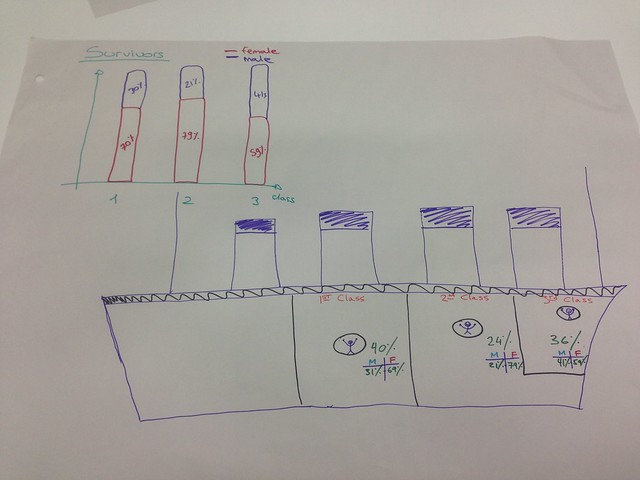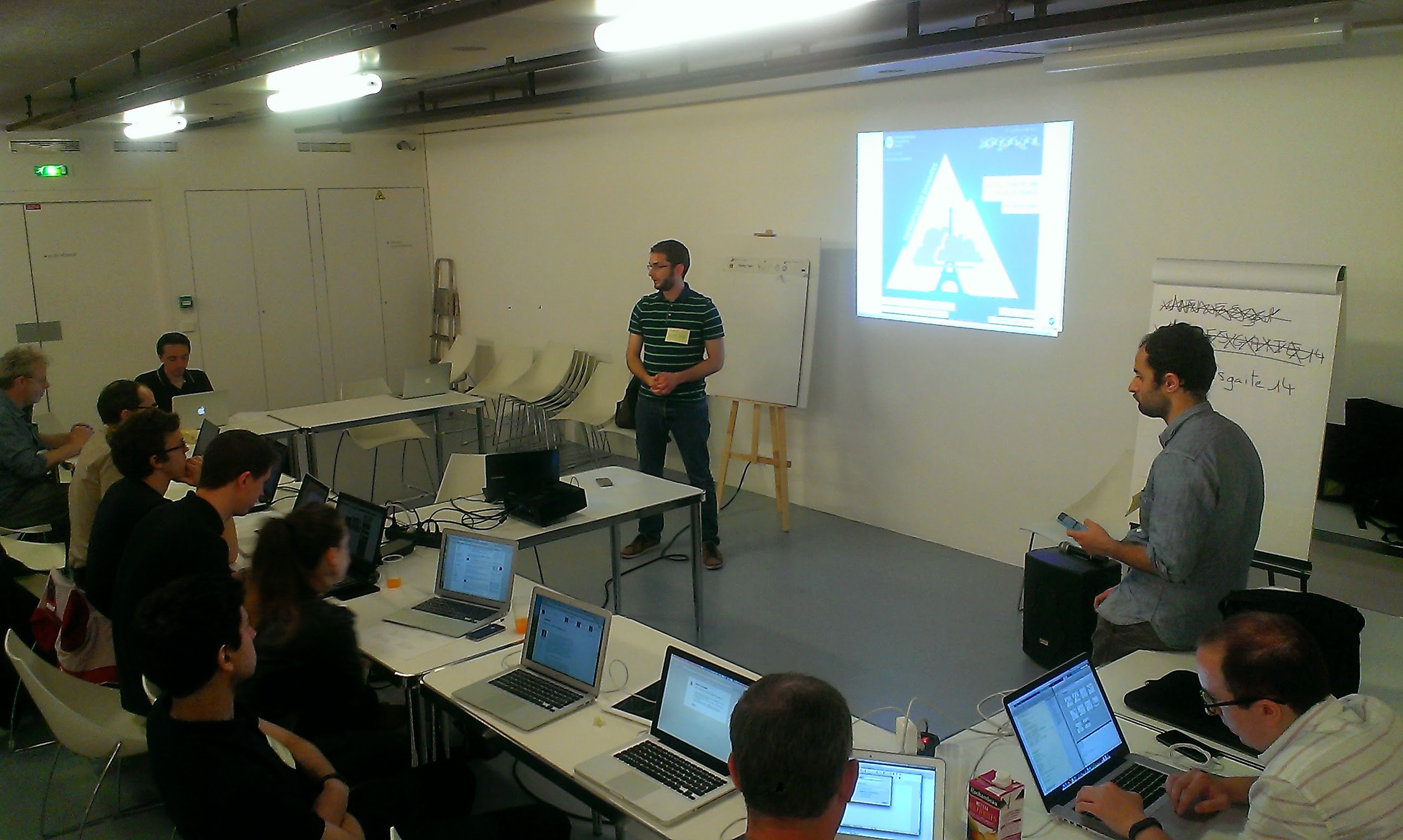Memories from San Jose
Escuela de Datos - January 29, 2015 in Data Expeditions, Блог, Интернационален
This article was originally posted in Spanish at Escuela de Datos by Phi Requiem, School of Data fellow in Mexico.
Last November, the Open Government Partnership (OGP) Summit took place in Latin America. CSO participants from 18 countries got together to share and exchange in an “unconference” where many topics were discussed. It was really interesting to learn about ways data things are handled in different countries, and to pinpoint the similarities and differences between our contexts.
 After a few words from the President of Costa Rica and other government representatives, a series of talks and roundtables began… And then, in parallel, Antonio (School of Data fellow in Peru) and I started a datathon.
After a few words from the President of Costa Rica and other government representatives, a series of talks and roundtables began… And then, in parallel, Antonio (School of Data fellow in Peru) and I started a datathon.
In this datathon, our task was to give training and support to the five teams asking questions to the dataset on the commitments of the OGP countries, and which can be found here → Action Plan Commitments and IRM Data, http://goo.gl/yZmcKC, http://goo.gl/vLgYWj
The first step is to approach the data and structure it. After this, it was time to pose the questions we wanted to answer through the analysis of this data, and a lot of great questions (and interesting purposes) arose – many more than time allowed us to develop further. Teams picked the topics that seemed most relevant to them.
 Teams were already working on their analysis at 9 sharp the following morning, while OGP San Jose sessions were taking place. The datathon participants looked for more data, did cross-comparisons, scraping, etc. By noon, they had found results and answers – it was time to start working to present them in visualizations, infographics, maps, articles, etc. At 3PM, the teams impressed us with their presentations, and showed us the following outcomes: http://ogpcr.hackdash.org
Teams were already working on their analysis at 9 sharp the following morning, while OGP San Jose sessions were taking place. The datathon participants looked for more data, did cross-comparisons, scraping, etc. By noon, they had found results and answers – it was time to start working to present them in visualizations, infographics, maps, articles, etc. At 3PM, the teams impressed us with their presentations, and showed us the following outcomes: http://ogpcr.hackdash.org
- Team Cero Riesgos: Generating information on risks by area. Data: OIJ, Poder Judicial.
- Team Accesa: Comparing the perception of Latin American citizens on current topics in the LatinoBarometer with the commitments and achievements per country. The goal: to know if governments are responding to citizen concerns.
- Team E’dawokka: Comparing the agendas and priorities of Central America with those in the rest of Latin America.
- Team InfografiaFeliz: What countries look like in the Human Development Index in terms of their anti-corruption measures (and their success).
- Team Bluffers: Measuring the percentage of delay and achievement of the commitments acquired by each country, and relating the design process for the commitments (measured by their relevance and potential impact) and their achievement.
At the end of the day, the jury chose teams InfografiaFeliz and Accesa as winners (which earned them a prize in cash).
 This was the first data expedition in Costa Rica, and you can find more in the following links: https://www.facebook.com/ogpsanjose, https://twitter.com/OGPSanJose, https://www.flickr.com/photos/ogpsanjose , http://grupoincocr.com/open-data/miembros-de-grupo-inco-ganan-la-primera-expedicion-de-datos-en-costa-rica
This was the first data expedition in Costa Rica, and you can find more in the following links: https://www.facebook.com/ogpsanjose, https://twitter.com/OGPSanJose, https://www.flickr.com/photos/ogpsanjose , http://grupoincocr.com/open-data/miembros-de-grupo-inco-ganan-la-primera-expedicion-de-datos-en-costa-rica
What I take away from my experience in this expedition is that people are always willing to learn and create, but not everyone is aware of what open data is, or how it can be useful for them. Initiatives of this sort are achieving their mission, but are insufficient – and that’s why we need to keep in touch with the participants and encourage them to share their experiences, and, why not: to replicate these initiatives.
Here are some tips for people with an interest in running data expeditions:
- It’s difficult to explain the difference between a hackathon and a data expedition… But, the earlier this is out of the way, the better.
- There most be a conceptual baseline. With such limited time it’s difficult to give introductions or previous workshops, but trying to do a bit of this can be really useful.
- Teams always have good ideas to handle information and show conclusions, but many times impose limitations on themselves because they think the technical barriers are huge. Having a hackpad or Drive folder with examples and lists of tools can help people overcome that fear.



















 Deepak, Akash and Tobias looked at what policies influenced cycling adoption in Denmark and compared these to a number of different cities across the world.
Deepak, Akash and Tobias looked at what policies influenced cycling adoption in Denmark and compared these to a number of different cities across the world.



